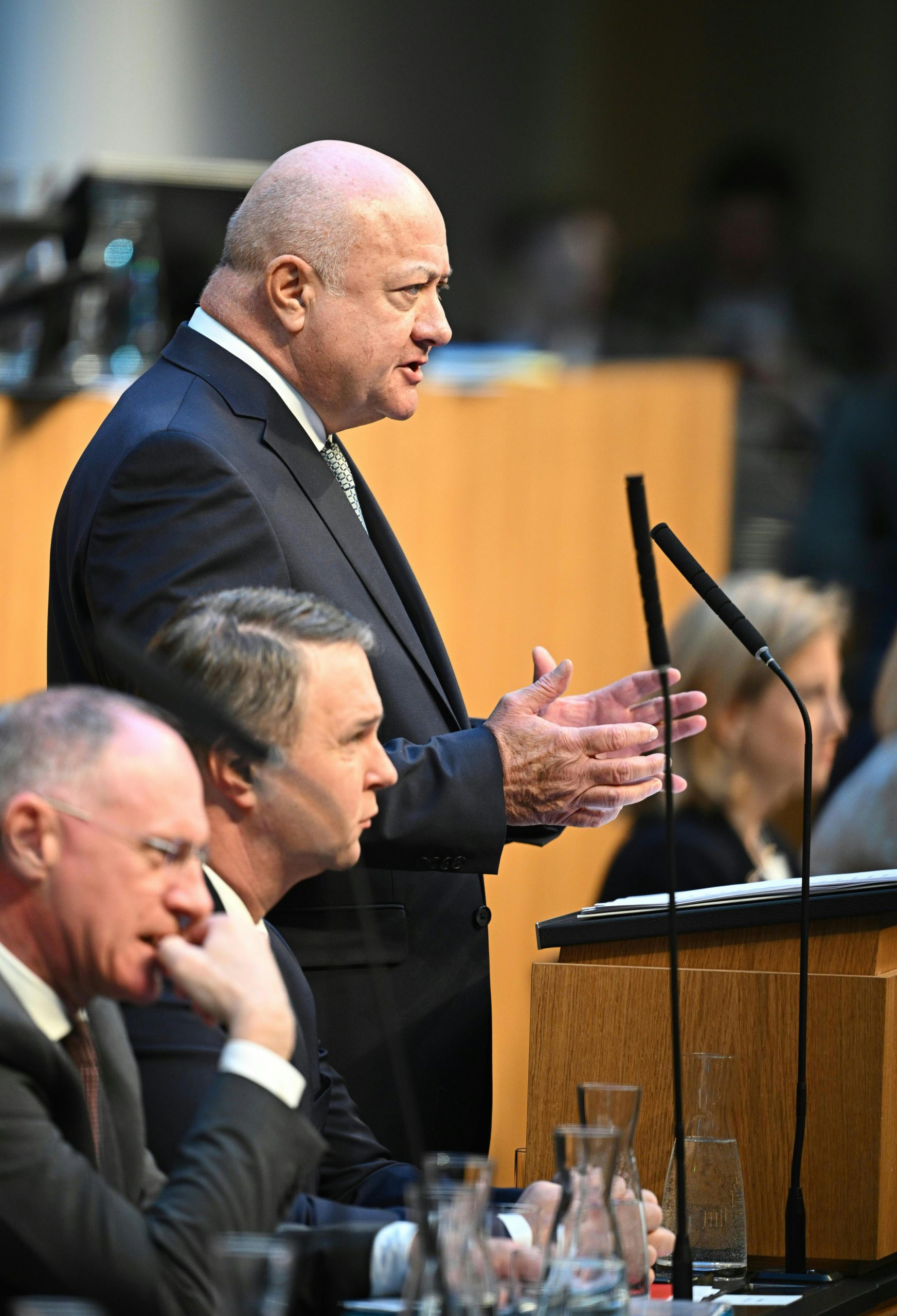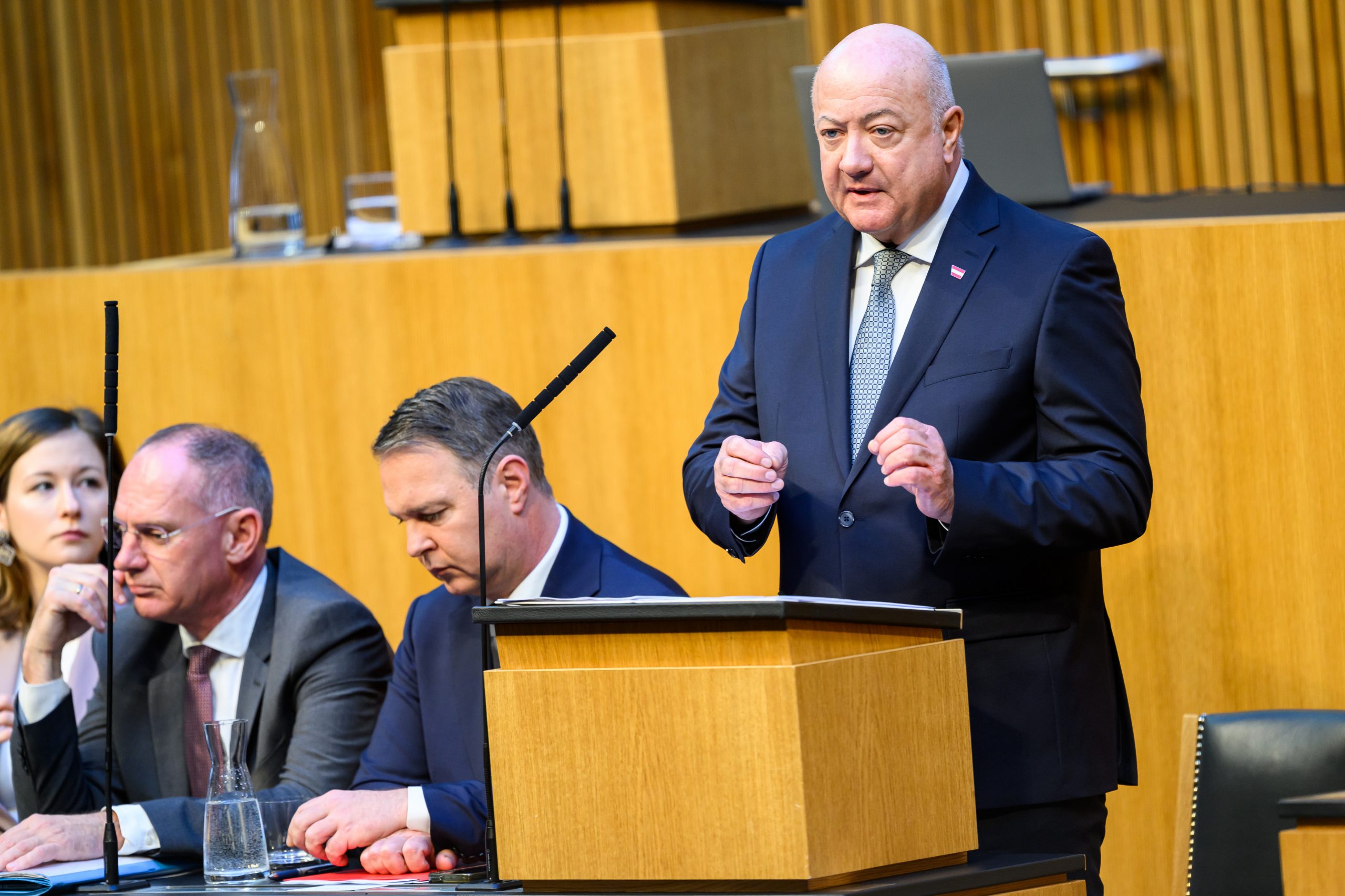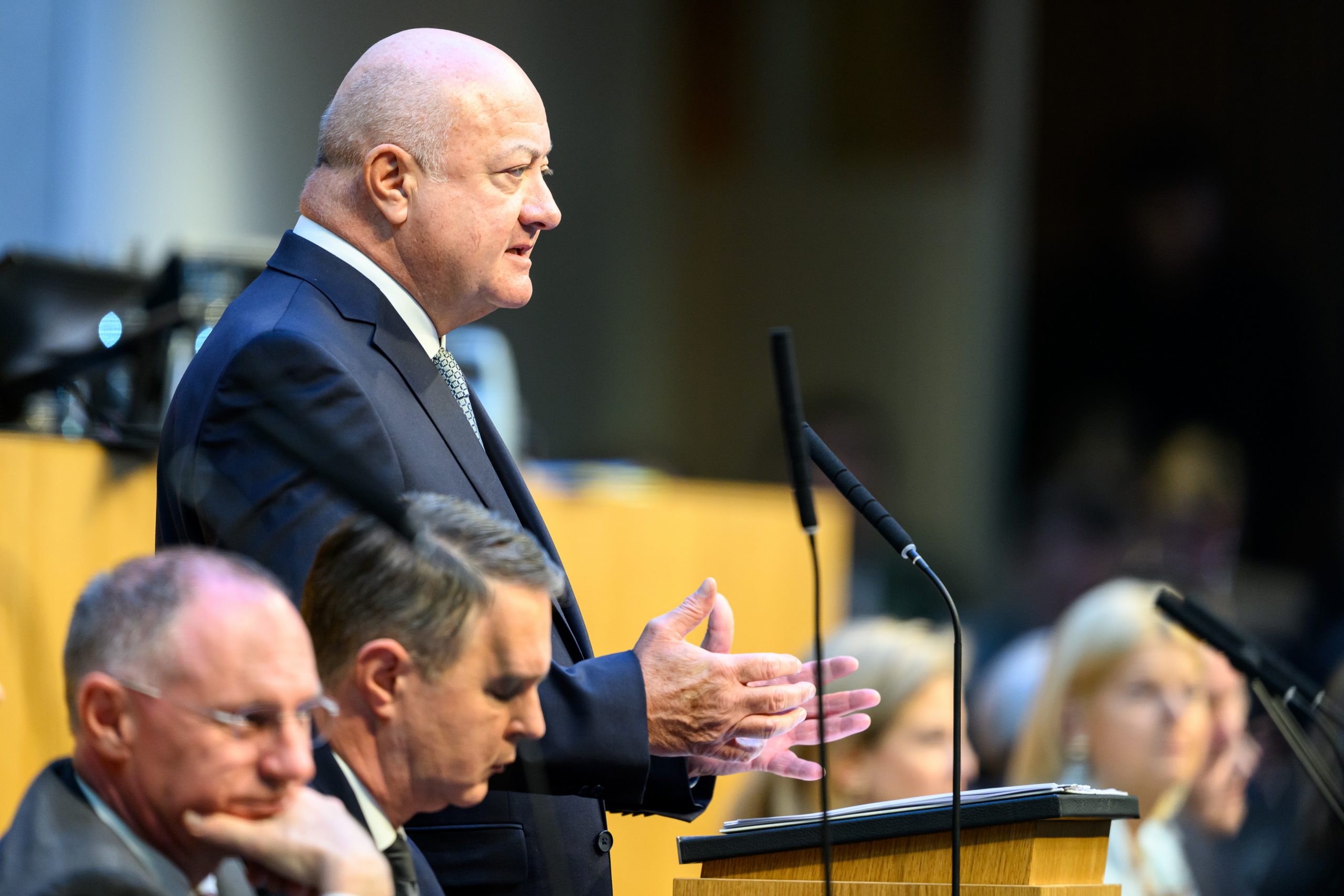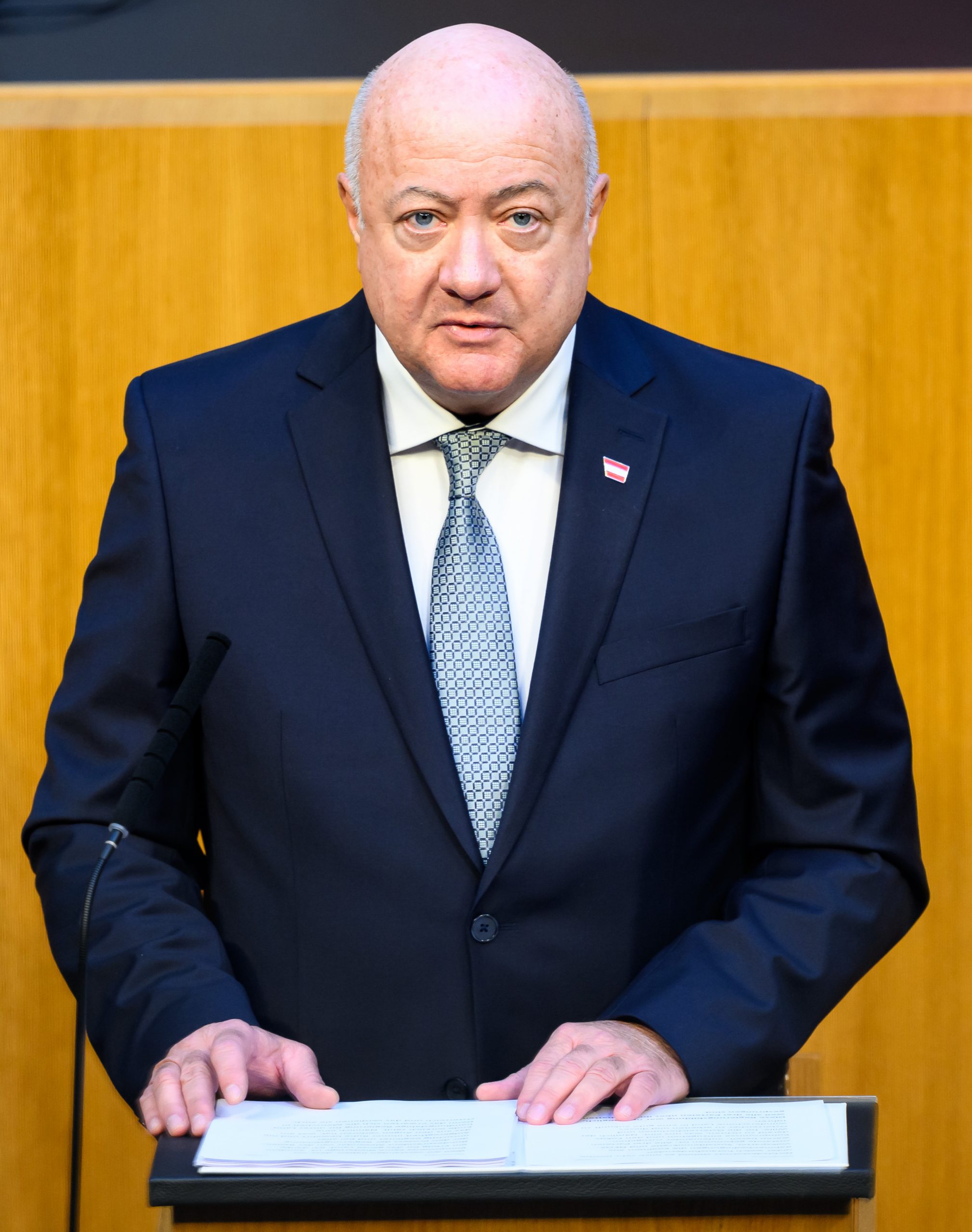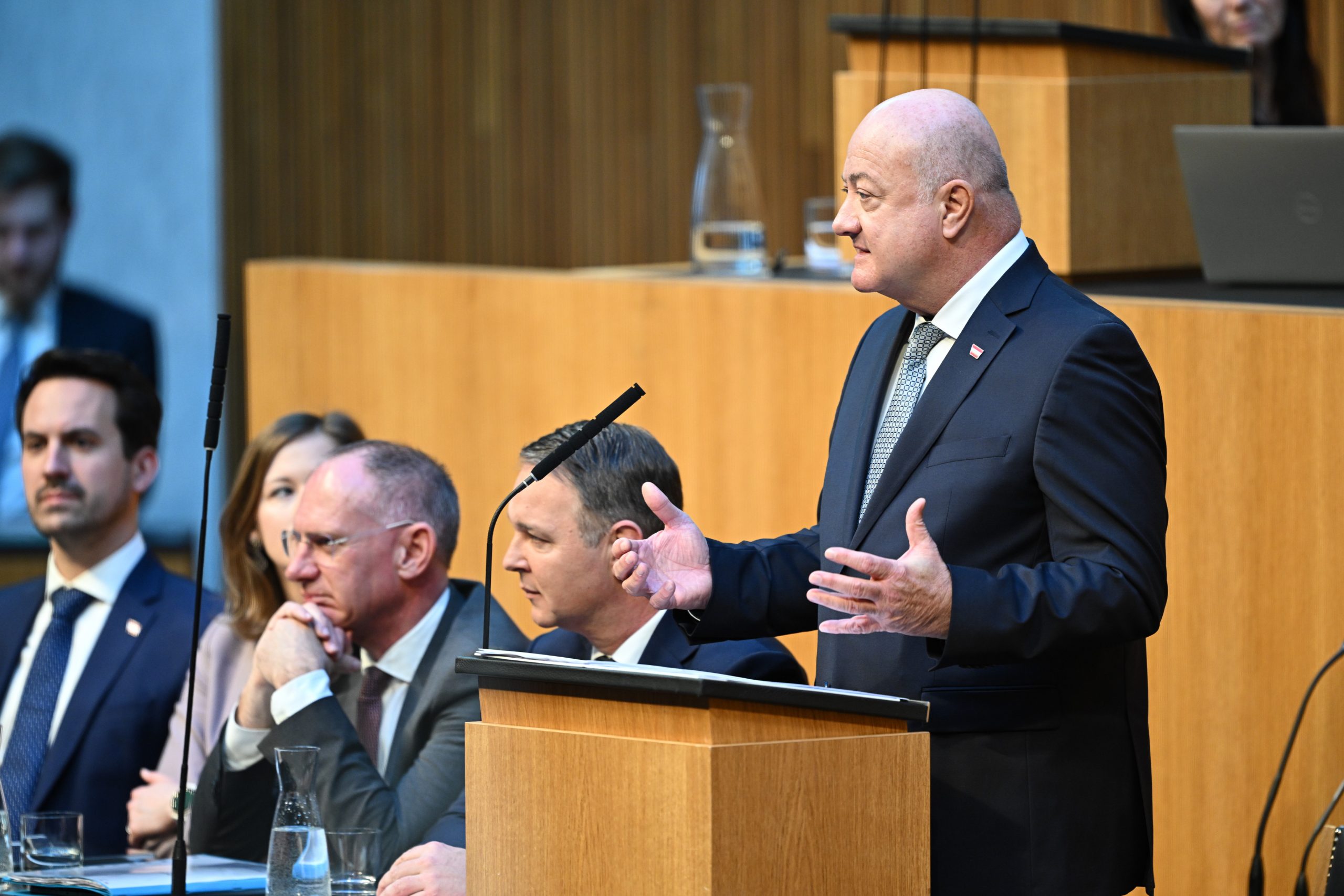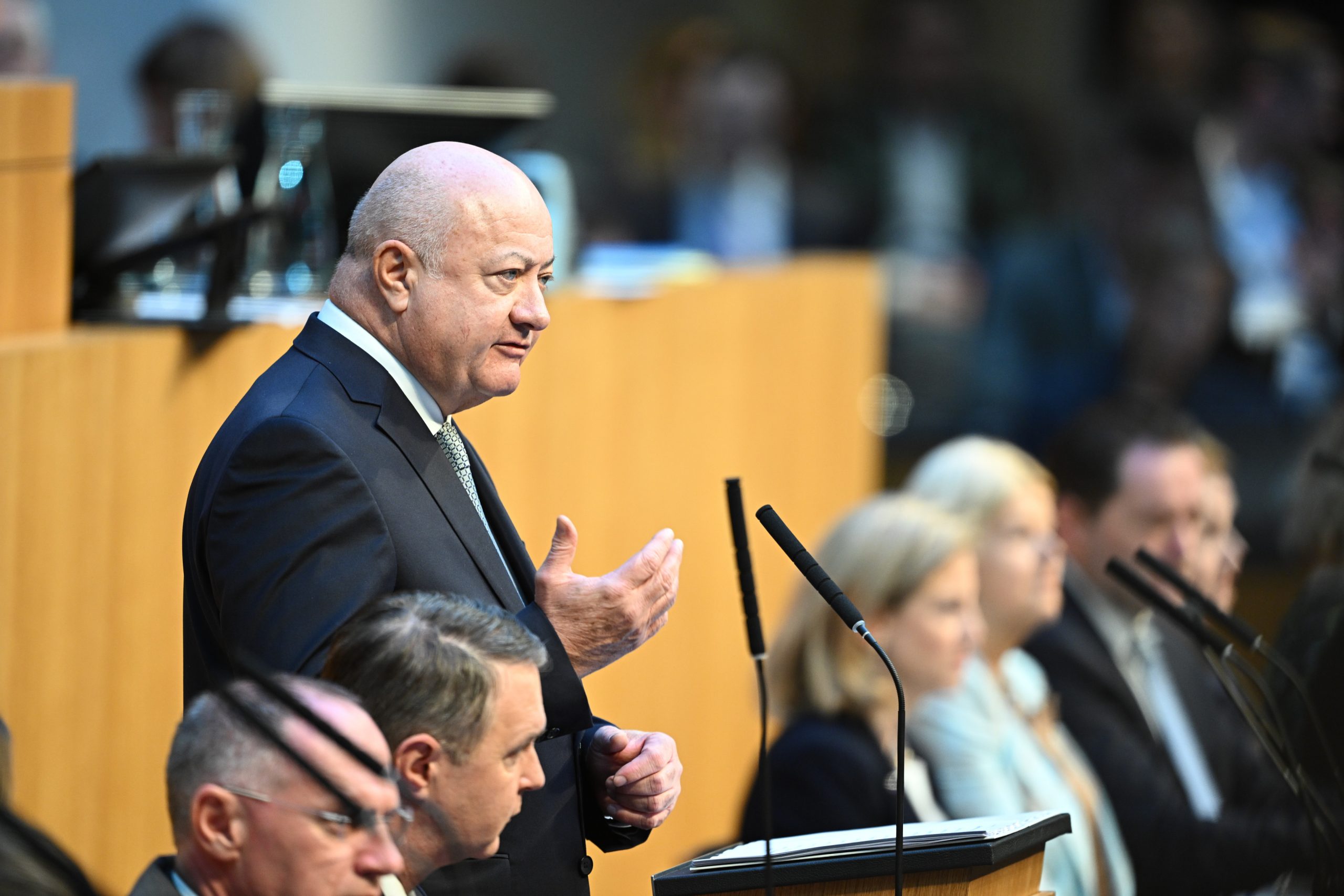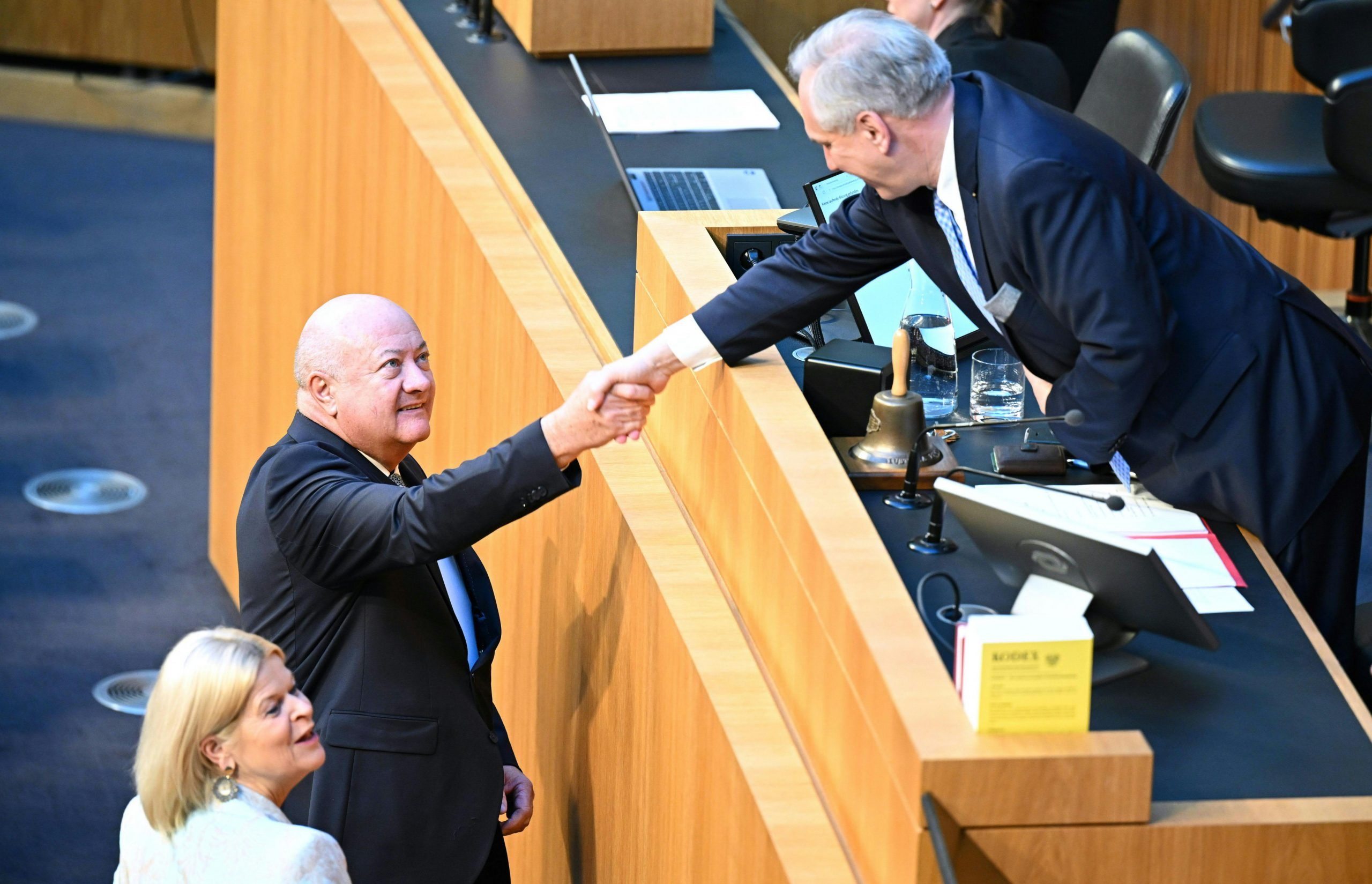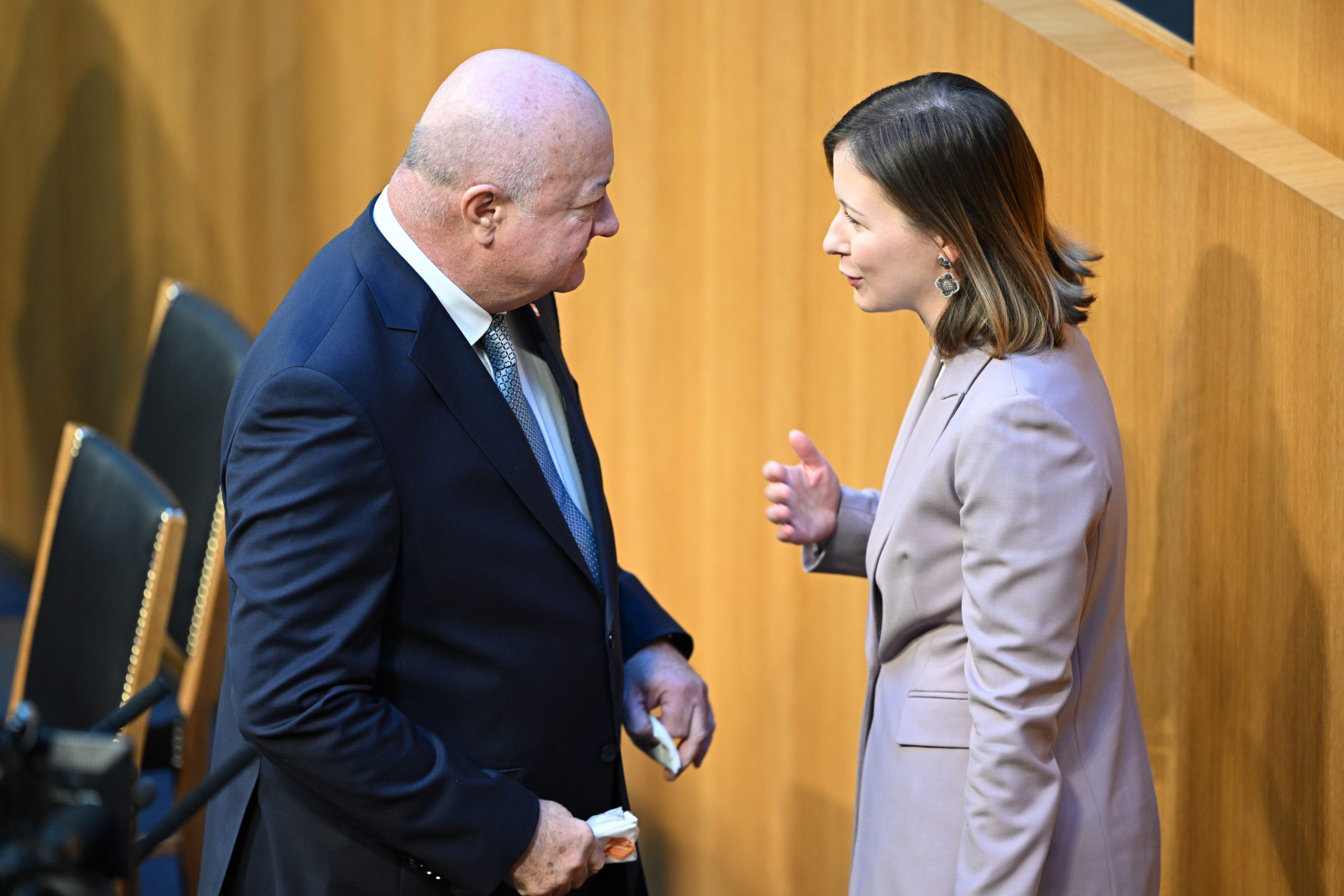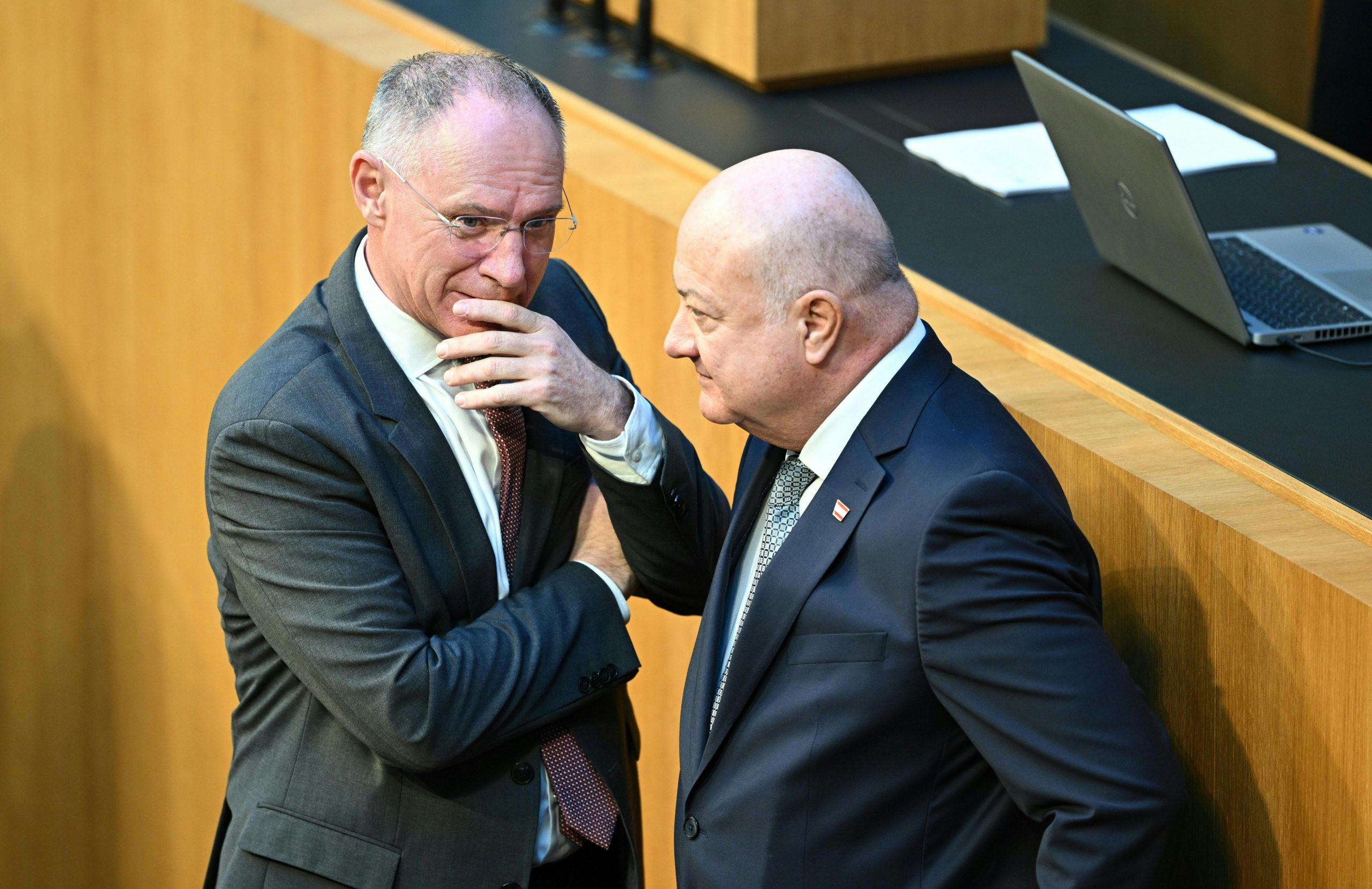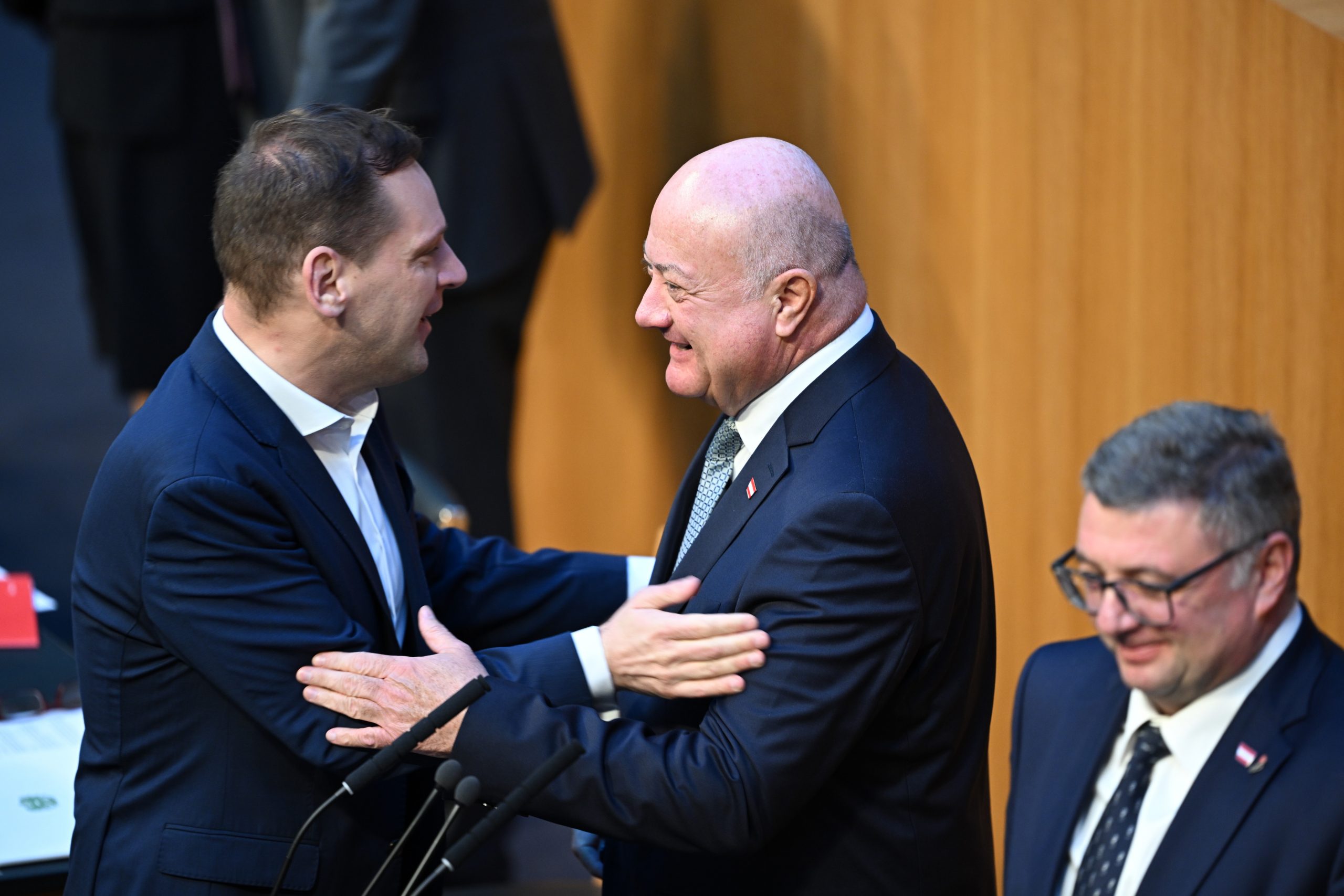```html
National Council: Stocker Delivered Government Statement and Saw "Success for the Whole Country"
```
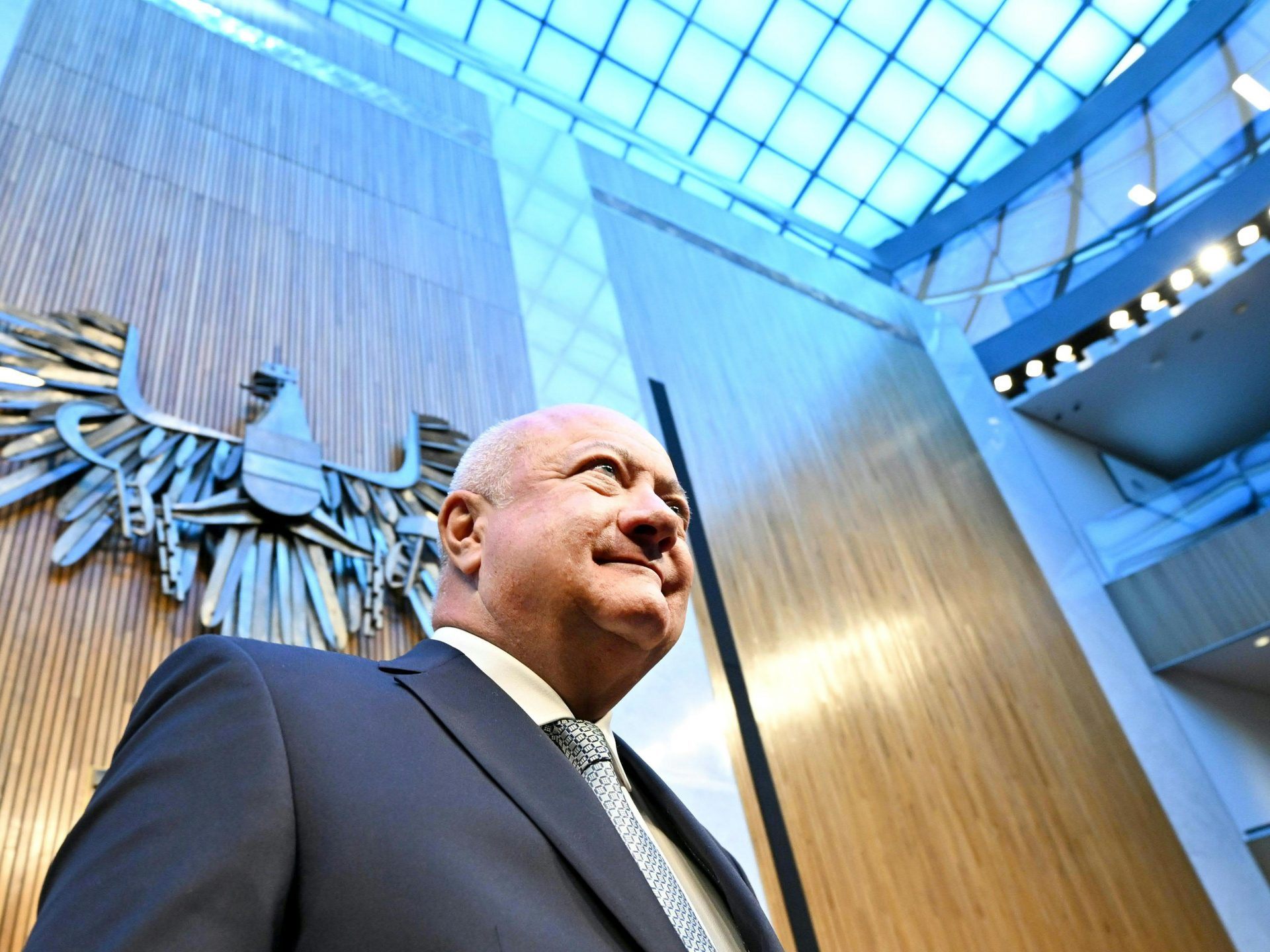
Federal Chancellor Christian Stocker (ÖVP) used his government statement on Friday in the National Council to praise the compromise as a "success for the whole country." Similarly, Vice Chancellor Andreas Babler (SPÖ) emphasized the distinction from the FPÖ. Foreign Minister Beate Meinl-Reisinger (NEOS) prepared the population for "two tough years." FPÖ leader Herbert Kickl criticized, accusing the coalition of "cowardice before the sovereign." The Greens saw both light and shadow.
Stocker Identifies "A Mix of Proven and New"
This "perhaps most difficult" formation of government was only possible "because all three parties went beyond their limits," explained the new Chancellor. The program of the three-party coalition is "a mix of proven and new." In the past, the consensus of constructive forces proved itself in the decisive moments of the Republic, said Stocker, referring to the cooperation between ÖVP and SPÖ after the end of World War II, as a precursor to the economic miracle and the accession to the European Union.
Stocker - despite illness at the podium - also championed the social partnership as an "Austrian unique feature on the world stage," which moved conflicts between employees and employers from the streets to the negotiation table. New is the constellation in the three-party format, making the coalition more stable and broader and providing an additional perspective. After the government statement, the noticeably ailing Stocker left the plenary hall and received medical attention. Further appointments were canceled. In the coming days, the Chancellor will recuperate, his spokesperson announced.
The Federal Chancellor had previously spoken in his speech about historical challenges facing the new "government of the center," given the difficult budget situation and the geopolitical situation. From the government program, the ÖVP leader particularly emphasized the fight against illegal migration and the abuse of the asylum system, the strengthening of internal security and national defense, the strengthening of the economic location, the support of agriculture and families through affordable housing and good education, as well as a clear pro-European orientation.
Babler Delivered Inaugural Speech
Babler described himself in his inaugural speech as someone "who celebrates democracy and the ability to compromise." The formation of the three-party coalition is a lively expression that the big picture is upheld. And: "It is much more than just acting against an FPÖ-led government." Nevertheless, he warned against the Freedom Party. Herbert Kickl had not only "put the axe to the roots of democracy," but had "gone ahead with the chainsaw."
Babler prepared the population for at least two tough years. "I am not revealing a secret when I tell you, it will not be easy." But then everything will get better, he promised: "Let's imagine how Austria can be when we implement our plans." Banks, foundations, and real estate giants would be made to pay, and housing would become sustainably cheaper. "We will organize and curb illegal immigration, not just shout about it," promised Babler in another jab at the FPÖ.
Meinl-Reisinger: "Not a Compromise Program"
The new Foreign Minister Beate Meinl-Reisinger (NEOS) stated that the work program is "not a compromise program," even though there was mutual approach. But "we have also gone beyond that," she emphasized. As important points, she mentioned the agreed sustainability mechanism for pensions, the planned measures in the education sector, the relief for entrepreneurship, integration measures, and the planned federal prosecutor's office.
Even with the consolidation path, they are thinking far beyond the legislative period. In terms of the budget, Meinl-Reisinger prepared the population for "indeed two tough years" of reforming and consolidating. It is important to create economic growth to secure prosperity and social systems for the future. The goal must be to "restore people's faith in the future." Internationally, despite current adversities, the NEOS leader also advocated for confidence and self-assurance: "We are a strong country in a strong, self-confident Europe."
Kickl: "Alliance of Election Refugees"
FPÖ leader Kickl mocked in his speech, given the densely occupied government bench, about the "most expensive government of all time." It is a "government of election losers" and an "alliance of election refugees." The only reason for the existence of the tripartite alliance is the fear of voters, the Freedom Party, of clear conditions and of change in the country: "Cowardice before the sovereign, that is the DNA, that is the glue of this government."
As the election winner, the FPÖ had wrestled hard with the ÖVP, but: "They didn't want all that because it would be too much real change." The current coalition is now celebrating itself, but it will soon realize, "that you are currently celebrating your own funeral." Kickl's message: "The people's chancellorship is coming, as sure as amen in prayer." This cannot be stopped, and "then liberation begins."
ÖVP club chairman August Wöginger did not accept any of this. "You are a don't-want chancellor," he countered Kickl. "You had the chance, you squandered the chance." He attested the FPÖ leader fantasies of omnipotence and that he always wanted to go through the wall with his head: "That was exactly the problem."
In contrast, the Green club chairman Werner Kogler, sitting on the opposition bench for the first time in five years, presented himself as decidedly constructive. He was pleased that in these uncertain, dramatic times, there is now a stable, pro-European, democratic government. However, following the recognition for the governing parties, there was also substantive criticism of the government program, namely the planned cuts in the environmental sector. This threatens damage to the "delicate plant of the economy," instead, environmentally harmful subsidies should be cut.
Van der Bellen and Fischer on Site
The new government presented itself to the members of the National Council for the first time at the special session. The media rush was correspondingly large, as was the visitor gallery, where, among others, Federal President Alexander Van der Bellen and his predecessor Heinz Fischer followed the government declaration. It was also crowded on the government bench. To accommodate the now 14 ministers and 7 state secretaries, the previous chairs had to be replaced with narrower ones.
At the beginning of the National Council session, a total of twelve deputies who followed due to the formation of the government were sworn in. For four of the six ÖVP deputies - Rudolf Taschner, Irene Neumann-Hartberger, Friedrich Ofenauer, and Johann Weber - it was a comeback to the National Council, while Thomas Elian and Jakob Grüner are new. In the SPÖ, Muna Duzdar and Elisabeth Feichtinger returned as familiar faces, while federal manager Klaus Seltenheim and Manfred Harrer joined as newcomers. Also entering as deputies for the first time are the two pink successors Janos Juvan and Ines Holzegger.
(APA/Red)
This article has been automatically translated, read the original article here.






